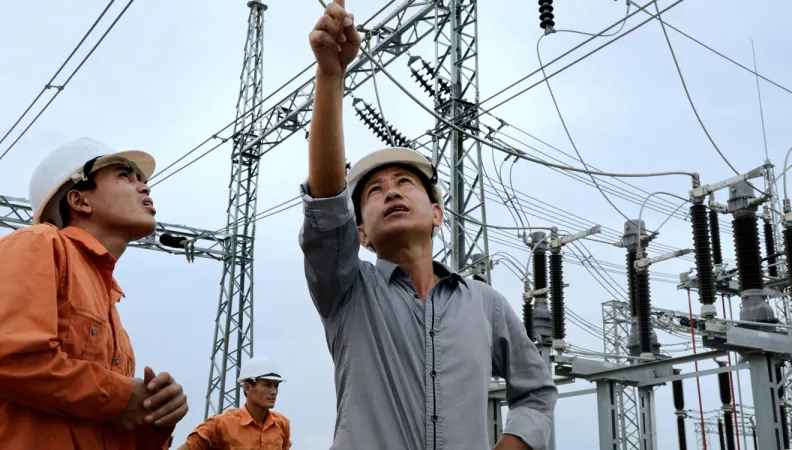Share the page
Investing in Human Capital in the Energy Sector
Published on

AFD’s work with partner countries in the energy sector aims not only to provide electricity and improve infrastructure, but to develop the skills required across the sector. This human capital is a resource that can grow as part of a sustainable and holistic approach to development.
The development of the energy sector and its associated activities is a cornerstone of the energy transition in developing countries. And the economic growth of these countries brings about an increase in demand for and access to energy services. “This development automatically leads to an increase in the need for labor and in jobs in the energy sector," says Mathilde Bord-Laurans, AFD’s Head of the Energy Division.
Training in the energy professions however, is often neglected. In many of the countries where AFD operates, the training structures are still under-developed, and not in line with the business realities of electricity companies. At the request of the countries or electricity companies, several AFD-supported projects are helping to improve training, providing professional development for those already working in the sector and equipping a new generation of technicians and engineers with the skills they’ll need.
Targeted Training
Energy sectors are diverse and call for a wide range of skills and levels of training. “Energy production, transmission and distribution involve specific professions that evolve rapidly in line with technological developments," says Adam Ayache, AFD Energy Division Project Manager.
Work can range from managing production and electricity transmission networks in real time, to infrastructure maintenance and customer relations. AFD-supported projects offer prospects of decent employment opportunities in a fast-evolving sector with great economic potential. “It is not just a question of mass training, it also implies training correctly,” says Antoine Belosselsky, AFD Professional Training Project Manager. “It involves anticipating the requirements and implementing appropriate training programs.”
In Mauritania, for example, AFD is supporting Somelec, the country's leading operator, in building its human resources by rehabilitating its trade school. AFD is also contributing to the establishment of a sector-based consultation framework with the backing of the Mauritanian Ministry of Technical Education to promote dialog between public and private stakeholders to set up new training programs.
In other countries such as Nigeria, AFD is supporting the structuring of professional organizations that promote the sector and defend stakeholders’ interests.
New skills for new jobs
One of the issues in this sector is generational, which, as Mathilde Bord-Laurans says, “involves the transfer of skills between young employees trained in digital technology and a more experienced generation that is familiar with the network, but has not mastered the digitalization of the activities.”
The continuing energy transition and the increase in renewable energies require technological development and the integration of digital technology, which calls for new infrastructure and new skills. “Some activities and tasks are changing or even disappearing," says Antoine Belosselsky. “Our role is to help our partners anticipate and manage the social consequences of the energy transition in a better way.”
In Burkina Faso, for example, the massive use of grid-integrated solar energy is an innovation for Sonabel that also represents an employment opportunity for young people. To assist in this transition, AFD is supporting Sonabel in building the skills of its staff in the solar energy sector while also helping it address general problems associated with retirement and the recruitment of the next generation.
Gender Imbalance
“In the energy sector, there are persisting stereotypes about the differences in skills between women and men,” says Camille Le Thuc, in charge of gender issues at AFD’s Energy Division. Factors such as inequality in physical strength and the perception of motherhood as an obstacle to a successful career should not be a barrier to the representation of women in energy-related jobs.
“The digitization of tasks makes it easier for them to enter this sector," says Camille Le Thuc. “It is also very important to work on training opportunities for women and, above all, encourage them to pursue studies in fields they may not feel are meant for them.” Agence Française de Développement is working to improve women's employability by offering its partners financial support dedicated to tackling gender inequality. Energy is being renewed in all areas.
